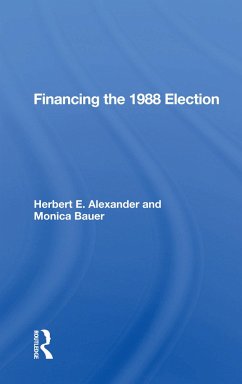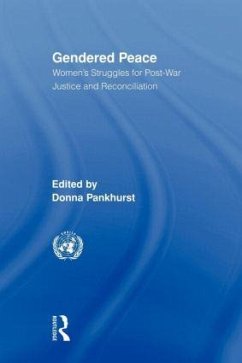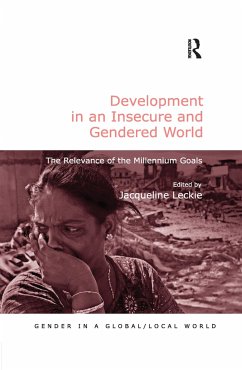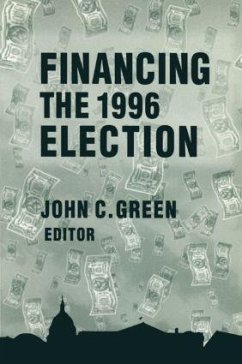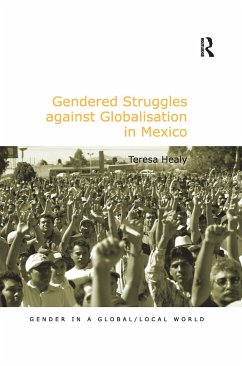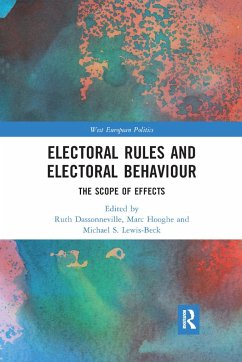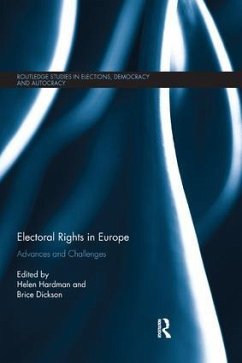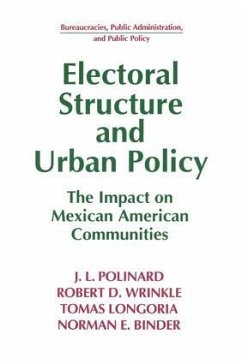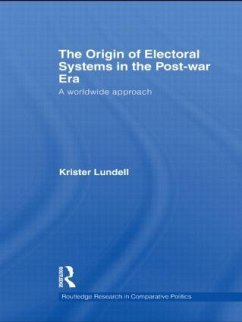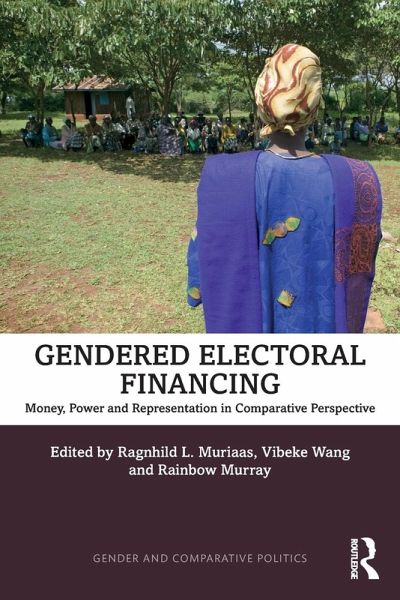
Gendered Electoral Financing
Money, Power and Representation in Comparative Perspective
Herausgeber: Muriaas, Ragnhild L.; Murray, Rainbow; Wang, Vibeke

PAYBACK Punkte
26 °P sammeln!
Illustrated by in-depth empirical research from six country studies, Gendered Electoral Financing: Money, Power and Representation in Comparative Perspective is the first cross-regional examination of the nexus between money, gender and political recruitment across the world. Money is assumingly one of the greatest barriers to women in the political recruitment process. The financial disadvantage of women is expected to constitute an obstacle for women's entry into politics everywhere and especially in developing countries where women's socio-economic status is disproportionately low relative ...
Illustrated by in-depth empirical research from six country studies, Gendered Electoral Financing: Money, Power and Representation in Comparative Perspective is the first cross-regional examination of the nexus between money, gender and political recruitment across the world. Money is assumingly one of the greatest barriers to women in the political recruitment process. The financial disadvantage of women is expected to constitute an obstacle for women's entry into politics everywhere and especially in developing countries where women's socio-economic status is disproportionately low relative to men's. This line of reasoning has caused a global upswing in both candidate- and party-directed financial schemes introduced to enhance gender balance in political office. This book develops a typology of different kinds of gendered electoral financing schemes and builds theories about its causes and consequences. By comparing how gendered electoral financing affects political recruitment processes in both established and emerging democracies, the authors identify whether and how the funding mechanisms incentivize a shift in political behavior. Gendered Electoral Financing is a timely, informative and well-written book that does an excellent job of explaining, in language accessible to students and researchers alike, the cost of elections, gender imbalance in political office and the effects of financial incentive mechanisms to increase women's representation in politics.





